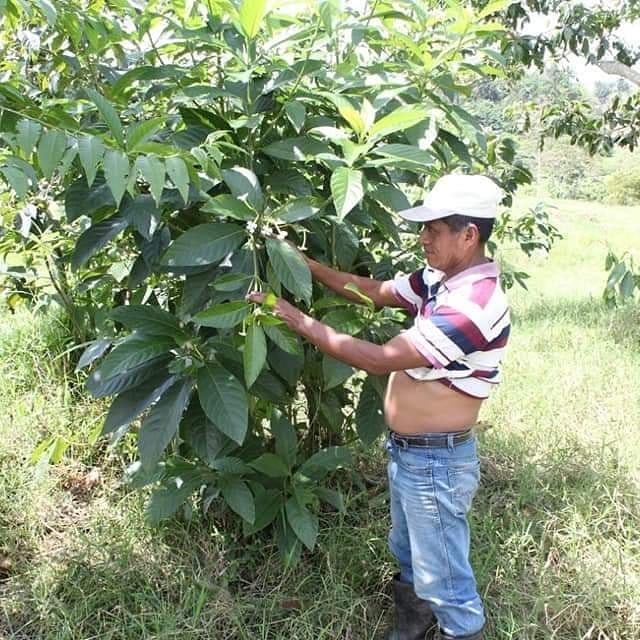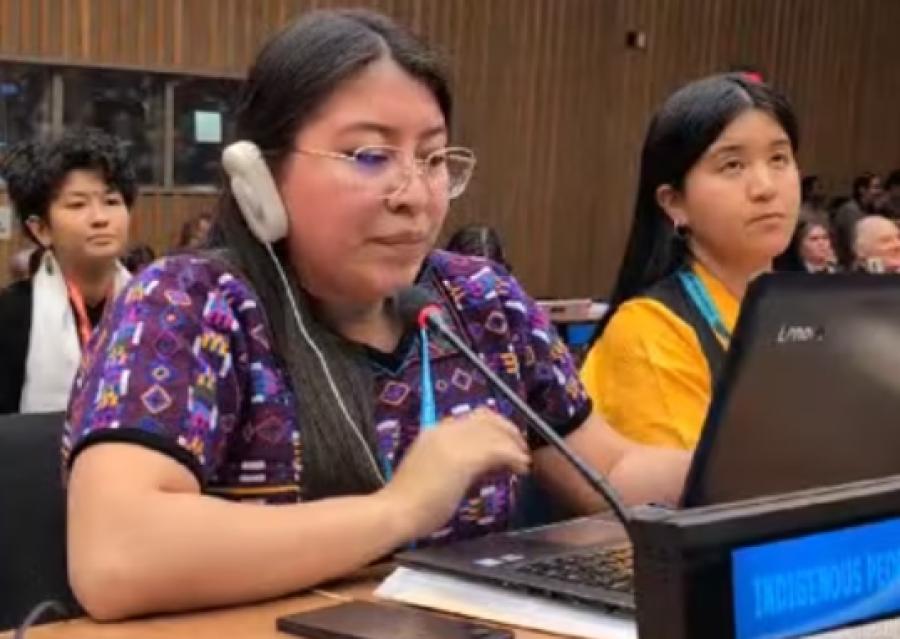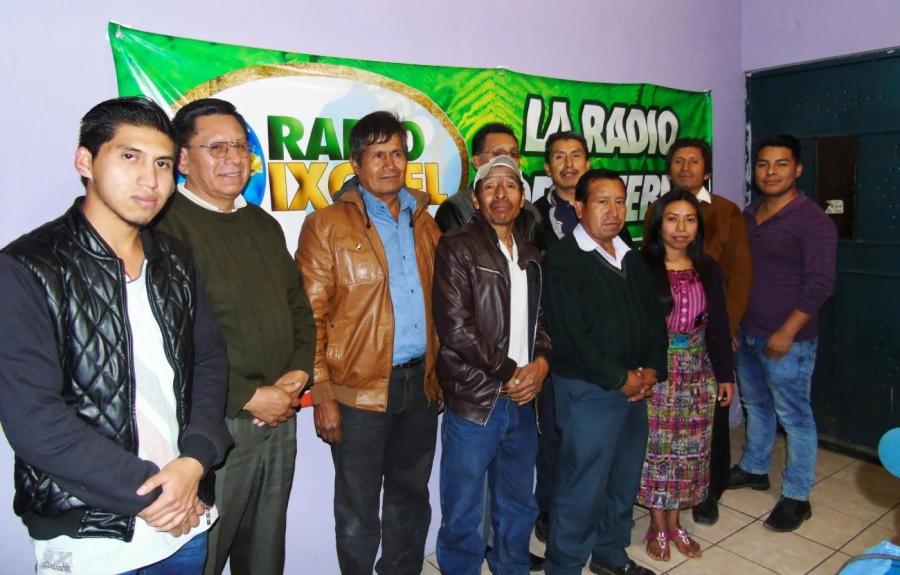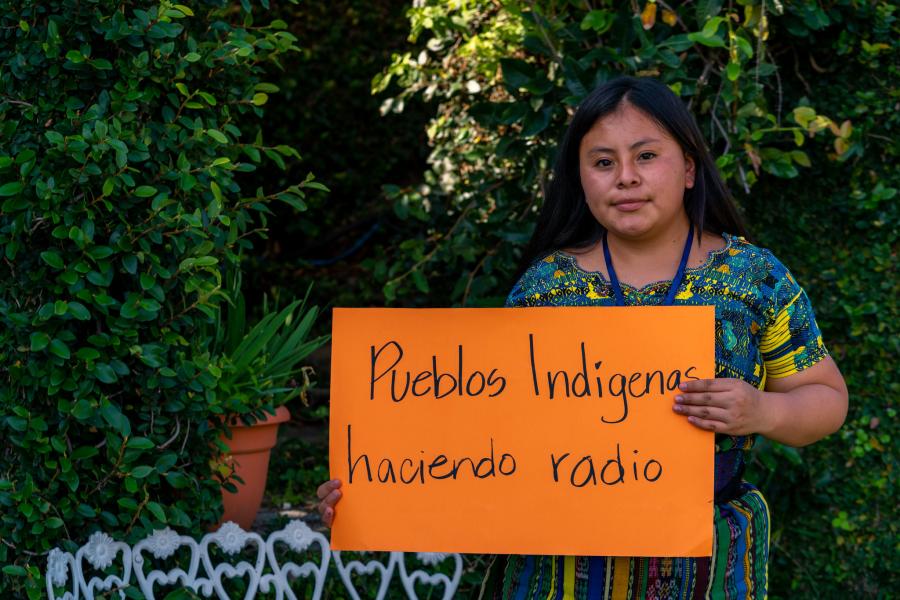
Photo: Domingo Choc Che. By Monica Berger on Facebook
Disponible en español aquí
By Diana Pastor and Jess Cherofsky
Note on content: This article discusses the brutal murder of a spiritual leader. Some of the referenced articles include graphic images.
Domingo Choc Che, Maya Q’eqchi’ Spiritual Guide, scientist, and master of traditional medicine, was brutally murdered on June 6, 2020, in a violent attack against his cultural practices. According to Monica Berger, anthropologist at the Universidad del Valle de Guatemala, he “was a guide committed to preserving and transmitting ancestral knowledge about the protection of Mother Nature and her medicine to new generations and to the world.” After a group of residents from Chimay, San Luis, Petén, Guatemala accused Domingo of "witchdraft" and of being responsible for the death of someone in the town. Four individuals doused Domingo with gasoline and set him on fire, burning him alive, and his body soon succumbed to trauma. The event was caught on film by local residents, and on June 9, 2020, the National Civil Police captured four people who are allegedly responsible for the murder of Domingo Choc Che.
The scientist and spiritual leader was affectionately known as “Tata (Grandfather or Elder) Domingo,” and was known nationally and internationally. In addition to being an Ajq’ij (spiritual guide) he was an Aj ilonel, a specialist in Maya medicine. “An Aj ilonel is, in the Maya medicine model, a person who has a gift that allows him to protect the health of people and family. It is someone who has knowledge of plants, lunar cycles and knows the time to identify, collect, and prepare medicinal plants. His community function and role is to protect the community. He is a person of great respect, and if you need his advice, he can offer it, be it to individuals or to families,” explains Carlos Morán Ical, Poqomchi’ investigator, psychologist, and Ajq’ij.
Alongside 29 colleagues, Tata Domingo was contributing to a project documenting the traditional medicinal plants of the Guatemalan department of Petén. The project is a collaboration among multiple universities, including University College London, Zurich University, and the Universidad del Valle de Guatemala. Since he was a boy, Domingo had a relationship with ancestral Maya ethnobotanical knowledge, carrying “the legacy of his paternal grandparents,” explains Héctor Quib, a colleague from the Association of Spiritual Guides. Tata Domingo’s colleague, Mónica Berger, remembers him:
“Only a few months ago, Grandfather Domingo was walking in the forest for an ethnobotanical trip to identify medicinal plant species. He explained to two young students how to do invocations to ask permission from the essence of the plant before cutting it, including every aspect of ancestral Maya wisdom and science about its use, how to prepare it, store it, apply it. We were working on an inventory of medicinal species to be able to document and protect Q’eqchi’ knowledge so that it remains as evidence that all of this is Indigenous knowledge.”
“Grandfather Domingo was helping to write a book that would contain the evidence of Maya Q'eqchi herbal science, as a mechanism to document the intellectual property of his People. He was part of a years-long effort to create the Popol Jay de Poptún, the Great House of the Council, which included the establishment of a botanical garden to preserve the medicinal species that are threatened by the destruction of Petén.”
According to Prensa Comunitaria, Domingo also worked for 10 years promoting mental health in a project started by the Office of Human Rights of the Archbishop of Guatemala. He worked with survivors of the 1960-1996 Guatemalan civil war to treat and heal the emotional and physical pain resulting from the war. This included accompanying them to exhumations and other actions in support of their mental health.
Violence towards Indigenous Peoples for practicing their cultures is not new. It reaches back over 500 years, to the Spanish invasion of the lands now known as the country of Guatemala. In 1996, the Guatemalan Peace Accords were signed after a 36-year civil war and a genocide that killed over 200,000 people, most of whom were Indigenous. The Peace Accords recognized Indigenous Peoples’ right to practice their own religions for the first time since colonization.
Yet religious fundamentalism has grown over the years since the introduction of evangelical churches in the 1980s. The Board of the K’iche Peoples declared in a press release, “The murder of the spiritual guide Domingo Choc makes very clear to us that political and spiritual intolerance still exists, and religious fanaticism has deeply hurt communities. Today, colonial attitudes and behaviors that prevent us from living the Mayab’ worldview remain in force. If we speak of human rights, we run the risk of being murdered, criminalized, and persecuted by groups of people manipulated by religious fundamentalism.”
Carlos Moran Ical also attributes violence against Indigenous lifeways, such as that which killed Grandfather Domingo, to this extremism: “The racism and discrimination in the last 20 years has become more extreme due to evangelical Christianity. [Domingo’s] role [as an ancestral Maya knowledgeholder, scientist, and health practitioner] is what caused him to be looked upon negatively.”
Meanwhile, K’iche leader Sebastiana Par Álvarez expressed solidarity and indignation in a broad declaration about the state and society of Guatemala: “It needs to be clear that this event is the result of a failed state that has not been able to instill in society the value of life, conflict resolution, respect for different cultures and spiritual expressions, and other values. The crime committed against Tat Domingo Choc Che brings to light the face of the invader’s racist, exclusive, and ethnocentric ideological subjugation, repeating the history of the murder of our ancestors in the name of God. Just because they practiced a different culture, our ancestors were considered to not have a soul or deserve to live.”
Guatemalan scholar Edgar Florencio Montufar, in his thesis states, “Lynching is a phenomenon that demonstrates the weakness and absence of social order in Guatemala; it is a social expression of protest in the face of non-conformity and/or rejection of formal conflict resolution mechanisms.” Although a National Lynching Prevention Program exists, this crime keeps occurring. Entities like the Attorney General for Human Rights exist to safeguard the respect, life, and integrity of Guatemalans, but its demands are not always successful. The Attorney General’s office has released a press release regarding Tata Domingo, and admonished the State for not having established a public policy on strategy for the prevention and persecution of lynching cases.
As Berger indicates in her Facebook post: “It is necessary to raise awareness and educate ourselves as a society to learn to understand one other as Guatemalans, to stop fearing each other, persecuting each other. We need to understand, recognize, and respect each other in our diversity.” Besides education and awareness, it is essential that the Guatemalan justice system does its job, as the people have lost confidence in institutions of the state. This gives way to a state of near-anarchy, in which certain areas become “lawless.” For example, the National Civil Police and the Public Ministry had difficulty even enter the village of Chimay, where the murder occurred, due to threats from local community.
This is not the only time that a spiritual guide has been murdered. The independent Guatemalan media outlet Prensa Comunitaria has listed 20 cases of murder of spiritual guides in the last 16 years. Among them was José Andrés López, murdered in Huehuetenango in January 2020. “He was a farmer and known also as a traditional healer. He was walking on the main street near the town’s entrance and was attacked by two strangers who shot him twice in the forehead. He died on the spot. According to the National Civil Police’s hypothesis, López had performed ‘evil spells’ on several people, so the two men decided to kill him.” In 2017, Bernardino Solval was killed by gunfire in Suchitepéquez. He was also known for performing Maya ceremonies. These instances join an epidemic of killings of Indigenous human rights defenders worldwide. In 2019, Cultural Survival reported 28 murders of Indigenous defenders in Latin America alone.
Cultural Survival expresses our outrage at this crime and our deep condolences to the family of Tata Domingo Choc Che and to the entire Maya Q’eqchi’ community for the immense loss of their Aj ilonel. We call on the authorities to shed light on what happened and hold the criminals responsible. Above all, we call on the State of Guatemala to take action to promote respect for the human rights of Indigenous Peoples to practice their cultures and spiritualities, as established in the United Nations Declaration of Rights of Indigenous Peoples; in the Guatemalan Peace Accords; and finally, in Convention 169 of the International Labor Organization, which establishes that it is the obligation of States to recognize and protect Indigenous Peoples’ own values and social, cultural, religious, and spiritual practices.



